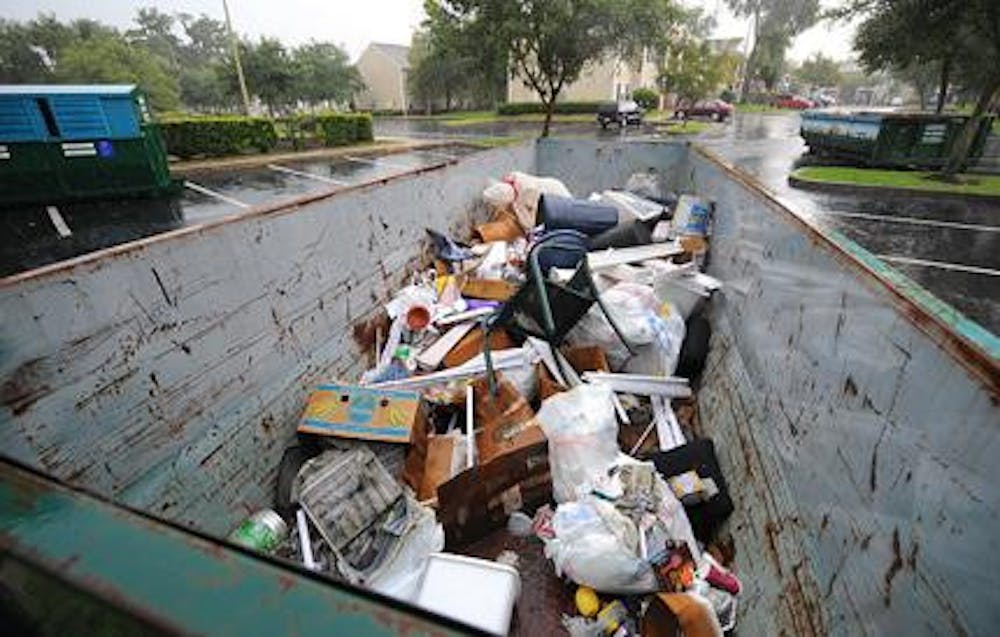A proposed state-wide "pay-as-you-throw" program would charge residents according to how much trash they throw out and increase state recycling requirements for businesses and apartments. Both requirements are already enforced by Gainesville.
The Department of Environmental Protection proposed the changes to the state legislature.
The plan includes making the 75 percent recycling rate mandatory for larger cities and counties and requiring recycling at businesses and apartment complexes, which are often not required to recycle.
However, apartment complexes in the city of Gainesville are required to recycle according to Gina Hawkins, director of the City of Gainesville Public Works Department.
"In Gainesville, the low price and reasonably strong environmental ethic here motivates people to recycle more and throw away less," Hawkins said. "People start thinking more about reusing, refilling, repairing and re-thinking, all the things that make less garbage."
Because the price of trash disposal and pick-up increases with the amount residents throw away, they are motivated to reuse, refill, repair and re-think their waste, she said.
One 20-gallon bag of trash picked up at curbside is $13.21, 35 gallons is $17.18, 64 gallons is $21.14 and 96 gallons is $26.42.
According to Hawkins, there are more than 2,000 "pay-as-you-throw" programs like these in the nation, but only two or three are in Florida, with Gainesville having one of them.
Another incentive program that the plan discusses is a rewards system for people who recycle.
Already implemented in North Miami, a company called RecycleBank weighs each recycling container before it is put on a truck and records the address. Companies sign up to have coupons sent to people who do a good job of recycling.
Hawkins prefers the current system over coupon-based programs.
She believes that if coupons go away, then less people will continue to recycle, but Gainesville's program relies on making waste expensive, a more effective incentive, she said.
"More communities and municipalities will consider this," she said. "In order to reach [the state's] 75 percent goal, this will require communities to consider more innovative means of waste reduction."






